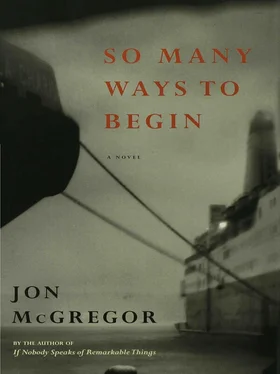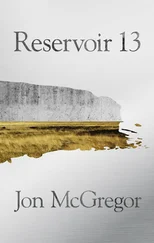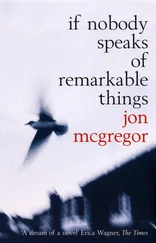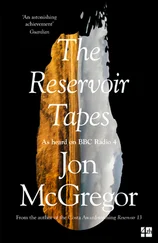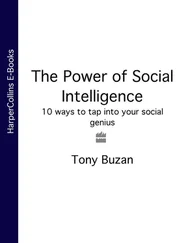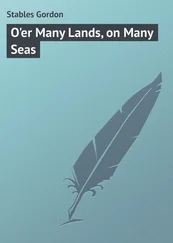He was putting dinner on the table one Friday night when Eleanor said someone phoned for you today, I forgot to tell you. She gazed down at her plate as she spoke, her hands flat on the table in front of her. She was still wearing her dressing gown, and her hair was hanging down around the sides of her face. Kate looked up at him, holding her knife and fork in her small fists, waiting to be told she could start. He sat down, the oven gloves still flung over his shoulder, and nodded at her.
Oh? he said, to Eleanor, only half interested, watching Kate scoop her peas into a crater of mashed potato.
Her name was Anna. She wanted to speak to you but I told her you weren't in, Eleanor said. Her voice wasn't quiet, but it sounded distant somehow, as if she was calling from another room and not sitting next to him at all.
Oh, right, he said. Something about work probably. I'll speak to her on Monday, I'm sure it can wait. He looked over at Kate, who was sticking two halves of fish finger together with a mashed potato cement, her mouth full, watching her mother curiously.
Did you have a good day at school? he asked. She thought about it for a moment.
Yes! she said. But Robin got in trouble, for breaking my pencil, because he did it when I was on the sand table, she said.
Did Mrs Ellson give you a new one? he asked. She nodded.
He glanced across at Eleanor again. She was eating very slowly, pushing small forkfuls of food around her plate as if checking to see that they were safe. But she was eating. He wanted to push her hair away from her face and be able to look her in the eye. He wanted to be able to ask how her day had been.
Kate put down her knife and fork and asked if she could go and play. He told her she could. Eleanor looked up.
Who's Anna? she said. He tried to explain.
Anna from work, he said, you know. The Assistant Curator, she does transport, young woman, dark hair. She started in '73 but she'd been doing placements before that, remember? You met her at the Christmas party the year before last, Anna Richards, you know. Speaking lightly, cutting his fish fingers into small squares as he spoke, heaping his peas up on to his fork, Speaking as though it wasn't at all important and he couldn't quite remember.
No, she said. I don't know.
Dark curly hair, he said, down to here, quite slim. She looked at him very briefly, her head held low.
No, Eleanor said, I don't know her. She got up from the table and turned the television on, sitting at the end of the sofa and resting a cushion on her lap, pulling her dressing gown across her knees. Kate stood up from the floor with a doll still in her hand and went to sit next to her, shuffling across to rest her head against her mother's arm. Eleanor edged away for a second before lifting her arm and wrapping it around her daughter's back.
Half a year later, with Christmas and New Year and winter behind them, with Kate at his mother's house and Eleanor still hiding in bed, he phoned Anna. He thought they should discuss the themes for the next foyer display, he said. As if it couldn't have waited until the next day. As if it was perfectly usual to speak about work like that on a Sunday afternoon. As if he hadn't known that Chris was going to be working away all weekend.
They talked about the foyer for a minute or two, no more, and fell silent. And he lowered his voice as he said, so, shall I come round?
She was quiet at first, and he wasn't sure if she'd heard him. He could hear a lawnmower somewhere nearby, and music. It sounded as if she had the back door open, and he imagined her sitting there with a warm breeze blowing through the house. Sorry? she said.
He looked up at the ceiling, squeezing the back of his neck.
I was just wondering, he said. If you're not doing anything. If you've not got anything to do, maybe I should come round. I'm not doing anything, he added. She hesitated for only a moment.
Okay, she said. Yes. Okay. He held the phone away from his face, looking at it, wondering what he was doing.
Okay, he said.
43 Small fragment of metal, unidentified, 1983
For a long time, he thought about it every day. That strange expectant atmosphere. The feeling of needing to leave but being unable to. The shock of that first touch, the dizzying force of it. Later, he found himself able to not think about it for days at a time, weeks even, caught out only by some passing reminder — birdsong, summer evening sunlight, rubble overgrown with birch trees and wildflowers. He would see these things, hear them, and he would remember.
But eventually even these things failed to bring it to mind, and he was able to go for months without remembering what had happened that day. And by the time he and Eleanor were driving to Liverpool to catch the Belfast ferry, almost twenty years later, it took something as direct as her stroking the bare warm skin of his belly and catching her finger on the old faded scar to bring it suddenly back.
She said are you sure you don't mind me coming with you? He drew his breath in sharply and laughed.
Well, it's a bit late now isn't it? he said. Her finger was still moving back and forth across the scar, looking for and finding the twin trails of tiny dotted lines where the stitches had once been, and he thought once more of the things he'd never told her, the things he wasn't going across the water to say.
The first punch was a shock. It shouldn't have been. He should have been thinking more clearly, when Chris suggested it, he should have thought about whether it really was quicker to cut across the site of the old car factory on their way back home, squeezing through a gap in the fence while Chris talked about the work he'd once done there, pointing out the brickworked outlines of the old warehouses and offices, the paint shops, the testing bays, the assembly line. He should have wondered if there was more to the conversation's drift towards marriage and trust than just the two pints of beer swimming through them, the long sloping fall of the evening's light and the birds sliding across the sky. He should have listened, and thought, and realised what might be coming. He should have known that the offer of a drink after work was out of the ordinary, that their talk had been a little too awkward, a little too forced, that Chris had seemed all along to be waiting for something. But he hadn't thought about any of these things; or if he had, he'd done nothing about them, and so when that first punch came, it came as a shock.
He turned just as Chris caught him with it in the stomach, noticing the strange grim look of concentration on his face, even as his body folded around that lump of a fist, even as his feet were scraping and scrabbling across the stony ground. He looked up, almost laughing, as if it might have been a joke or he could turn it into one, and he said what what are you doing what's this? Chris said nothing, and brought the heel of his open hand crashing into the side of David's head like a hammer.
And even as the punches were falling across his face, his ribs, his kidneys, David still found the time to be surprised, the breath to say but but what no but I didn't do anything what are you fuck I didn't do a thing. Chris laughed when he heard this, and kicked David's legs out from under him, the sun-baked concrete cracking hard against the side of his face as he fell to the floor.
What did you think you were doing, mate? Chris said, wiping his mouth with the back of his hand. How did you think you were going to get away with it?
I didn't do anything, David said, there's nothing, we only, and Chris called him a liar, a liar and a cunt, kicking him in the side of the head as he lay on the ground.
It was a hot summer' s day when he went to her house, when he telephoned and asked if he should come round and she said okay, when he walked over there and she opened the door and said hello. She'd tied her hair up, and long curls of it were falling loose across her face, and she kept blowing them out of her eyes, fanning herself with a piece of paper and saying it's hot, I'm hot, aren't you? And every time she said it she giggled, nervously or embarrassedly or excitedly, he couldn't tell. She had a laugh that made his ears flush red. She asked him in, and she poured them both a drink, and she dropped ice cubes into the glasses. She dared him to suck a whole ice cube and he dared her back, and they stood there in her kitchen with their mouths puckered around a block of ice each, grimacing at each other, her eyes watering and sparkling, and when she spat hers out, laughing, she touched him once again. Her two hands flat to his chest, gently, briefly. It had been months since Eleanor had touched him like that.
Читать дальше
Конец ознакомительного отрывка
Купить книгу
